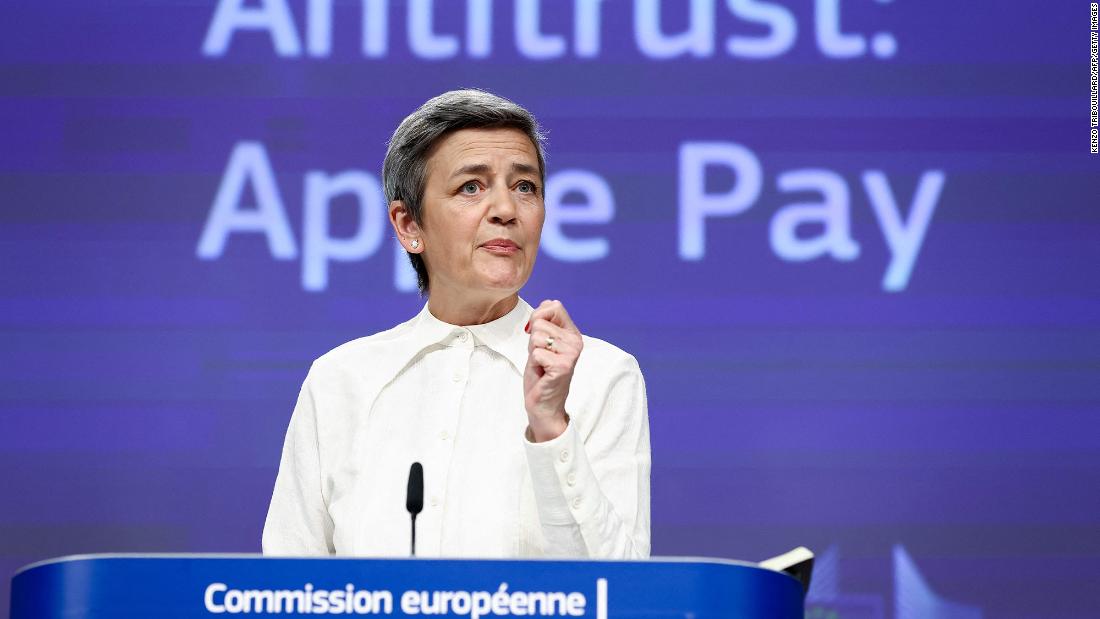

That means rivals that want to create apps or wallets utilizing the tap-to-pay features on iPhones can’t do so, a rule by Apple that’s harmed innovation, the Commission’s executive vice president, Margrethe Vestager, said.
“Developing a mobile payment application is costly,” Vestager said in a statement. “Investment may only be worth it if developers can reach both Apple and Android customers. Evidence on our file indicates that some developers did not go ahead with their plans as they were not able to to reach iPhone users.”
Apple’s defense, Vestager continued, was that its restrictions are meant to protect users from security risks and that consumers could be harmed by relaxing the limitations.
“Our investigation to date did not reveal any evidence that would point to such a higher security risk,” Vestager said. “On the contrary, evidence on our file indicates that Apple’s conduct cannot be justified by security concerns.”
In response, Apple said Apple Pay is “one of many options” Europeans have for making payments.
“We will continue to engage with the Commission to ensure European consumers have access to the payment option of their choice in a safe and secure environment,” Apple said in a statement.
The warning does not represent a final decision on liability. Apple will now have an opportunity to submit a formal response.
Apple has faced mounting regulatory scrutiny in Europe as officials have targeted a number of its business practices as potentially anti competitive, such as its practice of blocking the installation of apps from outside its own App Store.
The EU’s forthcoming Digital Markets Act could force Apple to allow those types of installations, force it to open up access to its NFC chips, and bring other sweeping changes to the tech industry writ large.